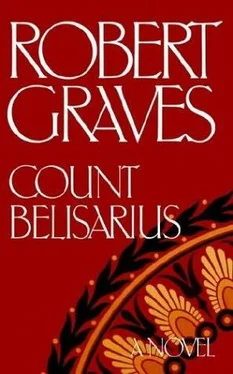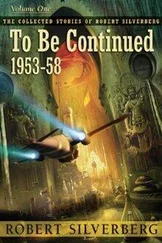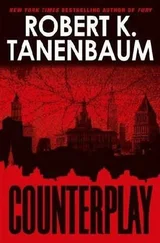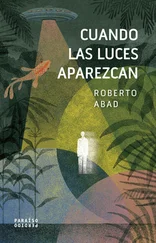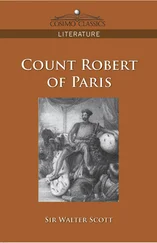Robert Graves - Count Belisarius
Здесь есть возможность читать онлайн «Robert Graves - Count Belisarius» весь текст электронной книги совершенно бесплатно (целиком полную версию без сокращений). В некоторых случаях можно слушать аудио, скачать через торрент в формате fb2 и присутствует краткое содержание. Жанр: Исторические приключения, на английском языке. Описание произведения, (предисловие) а так же отзывы посетителей доступны на портале библиотеки ЛибКат.
- Название:Count Belisarius
- Автор:
- Жанр:
- Год:неизвестен
- ISBN:нет данных
- Рейтинг книги:3 / 5. Голосов: 1
-
Избранное:Добавить в избранное
- Отзывы:
-
Ваша оценка:
- 60
- 1
- 2
- 3
- 4
- 5
Count Belisarius: краткое содержание, описание и аннотация
Предлагаем к чтению аннотацию, описание, краткое содержание или предисловие (зависит от того, что написал сам автор книги «Count Belisarius»). Если вы не нашли необходимую информацию о книге — напишите в комментариях, мы постараемся отыскать её.
Count Belisarius — читать онлайн бесплатно полную книгу (весь текст) целиком
Ниже представлен текст книги, разбитый по страницам. Система сохранения места последней прочитанной страницы, позволяет с удобством читать онлайн бесплатно книгу «Count Belisarius», без необходимости каждый раз заново искать на чём Вы остановились. Поставьте закладку, и сможете в любой момент перейти на страницу, на которой закончили чтение.
Интервал:
Закладка:
One biggish lad, whose name was Uliaris, pointing at the venerable Palaeologus, called out: 'Tell me, bullies, is this grandfather bringing his grandchildren to our school to learn his hic, haec, hoc — or is it contrariwise?'
As they crowded round, munching their bread and fruit and hard-boiled eggs, a boy who had remained behind happened to throw a fig at Uliaris, to tease him. The fig was soft and sour with the heat, and seemed fatally destined for use as a missile. It narrowly missed Uliaris, but burst on the shoulder of Palaeologus's gown, which was fresh from the fuller's and of particularly fine woollen cloth. Then a louder laughter still arose; but immediately Belisarius ran angrily through the crowd of boys, and stooped to pick up a large, round stone which some of them had been trundling backwards and forwards on the smooth flags of the yard; and, before the boy who had thrown the fig realized what was happening, Belisarius had rushed towards the bench and struck him on the head with this stone, so that he fell forward stunned. Belisarius, without saying a word and still carrying the stone, returned to his tutor's side.
Palaeologus trembled, expecting the other boys to avenge their playmate, and indeed some of them now advanced with threatening cries and gestures.
Belisarius did not retreat or apologize. He said: 'If any others of you dare to insult this old man, my tutor, I will do again what I did.'
Because he showed courage, a party of boys led by Uliaris rallied to him. Uliaris asked: 'What is your Colour, boy? We are Blues. The boy you struck, Rufinus, is leader of the Greens.' They expected him to proclaim himself a Blue too, in self-protection, and to be of service to their faction at some later time.
But, strange as it may seem, Belisarius had been brought up at
Tchermen in so unworldly a way that he had never even heard of the rivalry of the Blue and Green chariot-racing factions; which was almost as strange as if he had never heard tell of the Apostles Peter and Paul. For in both halves of the Roman Empire the factions are everywhere constantly spoken of, and they are no new invention cither; but date from at least the reign of the Emperor Tiberius, who was a contemporary of Jesus Christ.
Belisarius answered Uliaris: 'I belong to the Whites, and this is my lieutenant.' He pointed to Armenian John. Belisarius in his troop of boys on the estate had employed a white standard, to match his name, so the troop was called 'The White Troop'.
They explained, surprised at his words, that every boy must be either Blue or Green, or a turn-coat, or a trimmer. It was true that there were originally Red and White factions at the Hippodrome, representing the colours of summer and winter, just as the Green represented spring, and the Blue autumn. But chariot-races are now run two chariots against two, and not all four chariots each against the others; so White and Red no longer exist as independent factions, having long ago become affiliated, respectively, to Blue and Green, and disappeared.
Belisarius realized that he had said what sounded foolish, but none the less decided to abide by his words. He answered: 'If there are not yet any Whites at this school, Armenian John and I must make a beginning.'
They grew angry then, Blues as well as Greens, and told him that it was a strict rule of the schoolyard that knives or stones or other dangerous weapons should not be used in their tussles, but hands and feet only, and soft missiles like mud or snow.
Belisarius mocked at them for this and said: 'And it was you who called me a girl-boy!'
This provoked a noisy rush against him and Armenian John. But Andreas dropped the satchel and ran to their rescue. Meanwhile Palaeologus had gone to fetch aid; the undermaster soon appeared and prevented further mischief, for he induced Rufinus to make his peace with Belisarius.
Rufinus had recovered from the blow and, being a noble-minded boy, said that he admired Belisarius for avenging what seemed to be an insult to his tutor. He told Belisarius: 'If you and your comrade care to join the Green faction as members, you will be welcome.'
Uliaris shouted: 'No, let them come to us. We were the first to ask.'
It was unheard of that two faction leaders, such as Uliaris and Rufinus, should be competing for the support of a new boy. Usually it was only with difficulty and bribes that such a one obtained full membership in a faction: he had to wait for many months as a mere hanger-on to the faction that he favoured.
Belisarius thanked Rufinus for his invitation, but excused himself, as being a White; and Armenian John did the same. So Rufinus laughed. He did not appear insulted, but said: 'If your huge White army needs help against the Blues, you know what allies to summon to your aid.' The affair ended more quietly than it had begun, and when the boys heard that it was Belisarius and Armenian John who had fought the pepper-battle against the Cappadocians, grown men, they treated them with respect. With both Uliaris and Rufinus separately Belisarius became friendly; and even succeeded in making them work together when he was leader in some adventure. They played an important part in a famous snowball battle fought under Belisarius's generalship against the boys of a monastic school near by.
The story, though a boyish one, may be of interest. The monastery pupils were oblates- that is to say children dedicated by their parents to the monastic life. There was a breach in the monastery wall from which the oblates, armed with clubs like the Egyptian monks of the Sinai desert, used to descend and waylay boys of the Imperial school returning to their midday dinners, and beat them viciously. One snowy day Belisarius, with Armenian John and Uliaris as decoys, drew a large number of these oblatcs into an ambush — a timber-yard belonging to the father of Rufinus. There the Blue and Green factions, at peace for the occasion, nearly smothered them with snow and made prisoners of twenty boys, locking them in the wrestling-shed in the Imperial schoolyard. But unfortunately Uliaris had been captured, close to the breach in the wall.
Among those who fought along with Belisarius on this day was a small body of 'allies', namely four or five satchel-bearers, Andreas among them, and half a dozen poor boys known as 'servitors'. These were not regular scholars, but were allowed to sit apart at the back of the schoolroom and receive free instruction. In return they performed certain menial services: such as cleaning the school privies, and scrubbing out the classroom when the lessons were over, and distributing ink when it was needed, and smoothing out the wax on the used wax-tablets of the other scholars, and minding the furnace which in winter heated the rooms with pipes under the floor. These servitors were looked down upon by the ordinary scholars and treated as interlopers. But Belisarius had promised them privately that if they fought well and obeyed orders he would sec that their condition was improved.
He now put himself at the head of these allies and led them at a run towards the monastery, to the postern-gate behind the kitchen. It was here that at this time of day a few poor persons of all ages were admitted to gratuitous meals of soup and stale bread and broken meats. Belisarius and his band entered quietly, pretending to be beggar-boys, but then skirted round the kitchens and passed through the monks' cabbage-garden, meeting nobody, and reached the schoolhouse beyond. There they came upon Uliaris in a shed, bound hand and foot, and with a bloody head. He was not guarded; for the enemy were now all anxiously gathered at the breach of the wall, wondering about their friends. Uliaris urged an immediate attack on the oblates from the rear. But Belisarius considered the suggestion dangerous, because of the difficulty of escape should the oblates call for help to the monks and lay-brothers. He was for retiring quickly again by the way that they had come.
Читать дальшеИнтервал:
Закладка:
Похожие книги на «Count Belisarius»
Представляем Вашему вниманию похожие книги на «Count Belisarius» списком для выбора. Мы отобрали схожую по названию и смыслу литературу в надежде предоставить читателям больше вариантов отыскать новые, интересные, ещё непрочитанные произведения.
Обсуждение, отзывы о книге «Count Belisarius» и просто собственные мнения читателей. Оставьте ваши комментарии, напишите, что Вы думаете о произведении, его смысле или главных героях. Укажите что конкретно понравилось, а что нет, и почему Вы так считаете.
